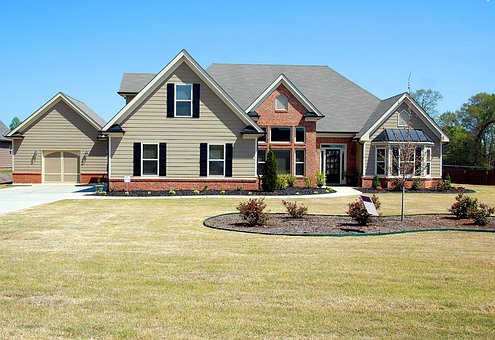Toronto Real Estate
Toronto Real Estate
1. Invest on a House To Reside In
This is the traditional
approach for real estate investment: purchasing a main (principal) residence
where you can live in. By doing this, you get a place to live--eliminating home
rent costs--, when you are also buying a long-term investment. By paying your
own mortgage instead of spending money on rent, you're growing your net worth.
There are two main considerations
in this type of property investment: the home's projected appreciation, and
ensuring your mortgage's interest rate is reduced enough so this investment can
beat the inflation in the long run.
You would want a home
situated in a good neighborhood with access to highways and public
transportation. Close proximity to the school district, restaurants, shopping
malls, and parks is also preferred. However, finding a house like this in big
cities like Toronto and Vancouver can be difficult since the purchase price is
already higher than Canada's average. Calculate carefully and be sure you'll
get a good gain in the long term (10-15 years time
frame or more).
2.
Flipping a House
In this sort of property
investment, we are generally looking for fixer-upper deals: under-priced
houses in need of renovation or repair, which you can sell for profit following
the repair. House flipping, however, is often not as simple as it's advertised.
You might run into complications such as wiring issues hidden inside the wall (which
could significantly increase the repair cost), or you may end up without any
buyer in a long time.
Working with a knowledgeable
realtor may help in reselling the property according to a desired cost. Also,
carefully assess the property to make sure that it doesn't have any significant
fault.
3. Buying
Rental Properties
Buying a rental property is
probably the best way you can produce a relatively short-term profit while
mitigating your risks. The main idea is to finance a house using a mortgage
program, and get a tenant to rent your residence, where the rental income will
cover your mortgage payment and a profit on top.
In general, you'd want to
look for houses with the same standards as a principal residence: great
neighborhood and accessibility to public transportation and facilities
(hospitals, schools, restaurants, etc.). You might also need to hire a property
manager to help take care of the property while handling the tenants. Just be
sure you will have the ability to make a profit after factoring in the cost for
property manager.
4.
Investing in REITs
If you don't have a
substantial quantity of cash available at the moment, or you don't want to
commit to a mortgage plan for one reason or another, investing in a Canadian
REIT (Real Estate Investment Trust) is a good option.
A REIT in a nutshell is a
company that owns rental property (or some other income-generating real
estate). This way, you can invest on the REIT through the stock exchange.
Another similar option is to invest in property ETF (Exchange Traded Funds) or
other real estate mutual funds.
As with any stock exchange
investments, however, there are risks involved, so make sure to check for
steady stock price history and dividend payments consistency.
5.
Buying a Vacation Property
Buying a vacation house at a
tourism spot, for example in Ontario near Niagara Falls, can also be a
fantastic real estate investment opportunity. The point is to purchase a
property in an in-demand place, and you may use property-sharing platforms such
as AirBNB to generate income.
You can even buy the
property with the old school timeshare approach, where you discuss the property
costs and usage period with other owners.
